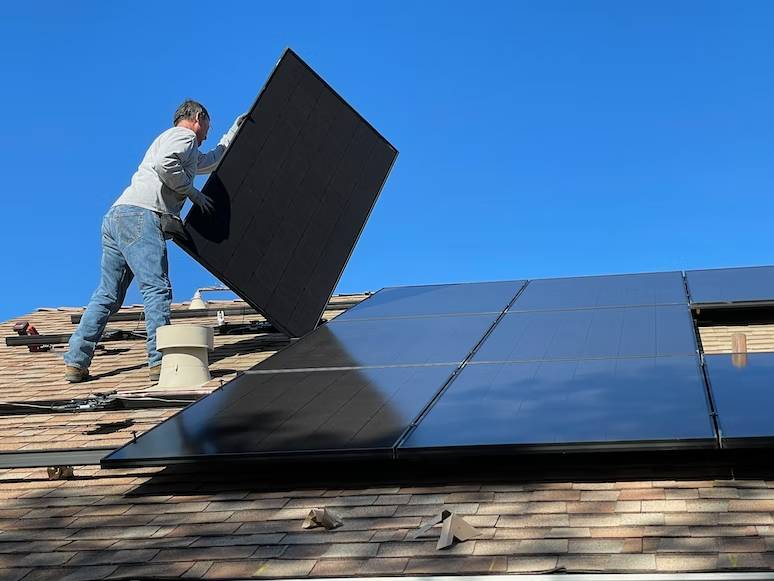You might be thinking about going solar, which is great news. Going solar can save money on utility bills, reduce your carbon footprint and increase the value of your home. But going solar involves a lot of scientific and technical jargon. It might look complicated — which is okay because there are numerous resources available that can help you.
Enact Systems is a solar software company that works with both installers and homeowners like you. We can design a custom proposal for your home using satellite imagery. After your solar panels are installed, Enact Home offers you the independent analysis of your setup with personalized insights.
Below we’ve compiled a list of the top ten solar panels that impressed us. Each solar panel listed comes from a reputable company that has outlined technical information and has trusted reviews.
The 10 Best Solar Panels in 2023
Jinko Solar
Jinko Solar is a trusted solar energy and storage company and currently the world’s largest solar panel manufacturer. The Chinese company’s American headquarters are based in Jacksonville, Florida. Similar to many Chinese solar companies, Jinko Solar offers reliable, affordable solar panels. Its current solar panel series are the Eagle G4, Eagle G5 and Eagle Continental — which outside of the U.S. are called Tiger instead of Eagle. The Eagle G2 is also still available on the market. Jinko Solar produces solar panels and storage batteries for both residential and commercial applications.
Specs:
- Product Warranty: 10 years
- Performance Warranty: 25 years
- Efficiency: 18.67% — 21.16%
- Power Rating: 350 — 620 W
- End of Warranty Performance: 80.7%
- Material: Monocrystalline
What we like:
- Made in America
- 25 year performance warranty
- Affordability and high quality
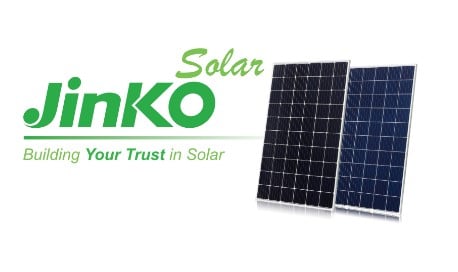
Silfab
Silfab is widely regarded as one of the best solar panel manufacturers in the world. In the company’s 13 years of business, it has built a reputation of trust and quality. Silfab offers two panel products: the Silfab Prime and Silfab Elite. Both are strong options that provide high quality and performance, with the Silfab Elite offering higher efficiency and technology that minimizes energy loss.
Specs:
- Product Warranty: 12 year with 25 year extended option
- Performance Warranty: 30 years
- Efficiency: 19.4% — 21.4%
- Power Rating: 300 — 400 W
- End of Warranty Performance: 82.6%
- Material: Monocrystalline
What we like:
- 30 year performance warranty is one of the longest
- Relatively higher efficiency
- Weather durable in rain, snow and wind
What we don’t like:
- 25 year extended warranty requires Silfab-certified installer
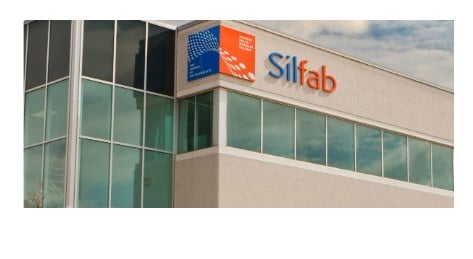
LONGi
LONGi is one of the world’s largest solar manufacturers and the largest manufacturer of monocrystalline silicon wafers. Founded in 2000, the company pushed the solar industry to more efficient monocrystalline solar cells. LONGi offers high performance panels built on gallium-doped silicon, which has a slower degradation rate. Its panels also come with PERC technology which reduces energy loss. The most popular residential model offered by LONGi is its Hi-MO4 series panels offered in 60-cell, 66-cell and 72-cell formats.
Specs:
- Product Warranty: 12 years
- Performance Warranty: 25 & 30 years (depending on model)
- Efficiency: 20.9% — 21.3%
- Power Rating: 350 — 380 Watts
- End of Warranty Performance: 84.8%
- Material: Monocrystalline
What we like:
- Higher efficiency at 21.3%
- Longer performance warranty periods
- Slow degradation rate
What we don’t like:
- Less consumer or independent publication reviews
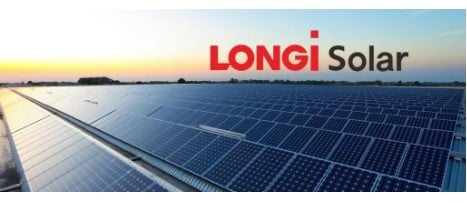
Panasonic
Panasonic is a trusted name in technological manufacturing and solar maker. Its newest solar panel, the EverVolt, has a high-efficiency heterojunction (HJT) solar cell technology to power your home. HJT panels are more efficient and have a lower degradation rate. Another selling point about the EverVolt is its performance in warmer climates. Panasonic designed it primarily for residential applications.
Specs:
- Product Warranty: 25 years
- Performance Warranty: 25 years
- Efficiency: 19.8% — 22.2%
- Power Rating: 350 — 430 W
- End of Warranty Performance: 92%
- Material: Monocrystalline
What we like:
- Higher efficiency, second on our list to SunPower
- Solid 25 year product and performance warranty
- Trusted company
What we don’t like:
- Panasonic outsources its manufacturing to third parties

Qcells
Q Cells — or Hanwha Q Cells — is a large solar company originally from Germany, now based in South Korea. The company produces six residential solar panel models and six commercial models. Q Cells newest residential model is the G10 series, which produces between 385 and 415 watts of power. Widely regarded as one of the best brands, Q Cells provides durability, efficiency and a comparatively high power rating.
Specs:
- Product Warranty: 25 years
- Performance Warranty: 25 years
- Efficiency: 20.6% — 21.4%
- Power Rating: 335 — 415 W
- End of Warranty Performance: 86%
- Material: Monocrystalline
What we like:
- High end of warranty performance
- All black panels for a seamless look on most roofs
- Durable in snow or wind
What we don’t like:
- Larger models may not fit on smaller roofs or residential spaces
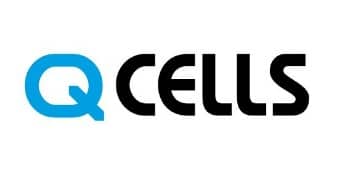
Hyundai
Hyundai is a trusted manufacturer that produces cars and high-quality solar panels. The Korean company produces multiple series of solar panels for both commercial and residential settings. On the residential side, its three main solar series are the HG Series, DG Series and VG Series. The efficiency of these panels are average, but with a slightly higher end of warranty performance. Hyundai’s most notable feature is the shingled solar cell technology that makes its solar panels generate more electricity even in partial shade.
Specs:
- Product Warranty: 10 & 15 years (depending on model)
- Performance Warranty: 25 years
- Efficiency: 19.6% — 21.4%
- Power Rating: 385— 445 W
- End of Warranty Performance: 84.8%
- Material: Monocrystalline
What we like:
- High-quality solar panels
- Shingled cell format
- Trusted manufacturer
What we don’t like:
- Shorter product warranty when compared to other high-quality solar panel manufacturers

Mission Solar
Mission Solar is a Texas-based solar company with two solar panel models. The MSE PERC 66 and MSE PERC 72 are both designed for either residential or commercial settings. While the company is newer, it is becoming a more popular choice among homeowners. Since it was based in San Antonio, Mission Solar panels were not subject to tariffs nor delivery delays. Compared to other American solar manufacturers, Mission Solar receives one of the highest PTC scores which means its solar panels perform well in real world conditions.
Specs:
- Product Warranty: 12 years
- Performance Warranty: 25 years
- Efficiency: 18.3% — 19.9%
- Power Rating: 390 — 435 W
- End of Warranty Performance: 84.08%
- Material: Monocrystalline
What we like:
- Made in the U.S.
- Great price for its quality
- One of the highest PTC scores for American solar panels, meaning it performs well in real world conditions
What we don’t like:
- Slightly less efficient, when compared to market
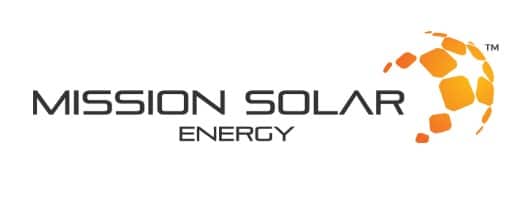
REC
REC is a Norwegian-founded, Singapore-based solar company that offers a variety of panels for residential and commercial applications. REC is one of the oldest companies in solar and is highly trusted. Its newest REC Alpha series is competitive with SunPower and LG, who exited the solar market last year. The company pioneered half-cut solar cell technology, which improves efficiency and power output.
Specs:
- Product Warranty: 20 years (25 year extended warranty available)
- Performance Warranty: 25 years
- Efficiency: 19.5% — 22.3%
- Power Rating: 360 — 450 W
- End of Warranty Performance: 80.7% — 92% (depending on model)
- Material: Monocrystalline
What we like:
- Lead-free manufacturing for greater sustainability and safety
- Strong product and performance warranty
- Premium solar panel quality
What we don’t like:
- 25 year extended warranty only available from REC-approved installer
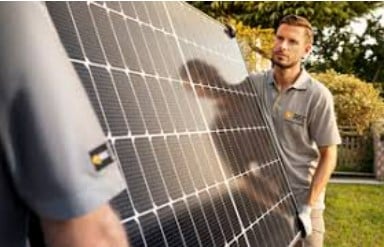
Trina Solar
Trina Solar is one of the top five solar panel producers in the world. The Chinese-based company offers both monocrystalline and polycrystalline panels known for their reliability and affordability. Homeowners have access to six residential solar panels with its most popular and newest series being the Vertex, Vertex S and Vertex S+. While Trina Solar offers affordable solar panels, its efficiency is in the medium-to-high range.
Specs:
- Product Warranty: 25 years
- Performance Warranty: 25 years
- Efficiency: 19.9% — 20.6%
- Power Rating: 350W — 670 W
- End of Warranty Performance: Just over 80%
- Material: Monocrystalline & Polycrystalline options
What we like:
- Affordability
- 25 year warranty for both product and performance
- Offers both monocrystalline & polycrystalline options
What we don’t like:
- Historic quality issues during the early 2010s
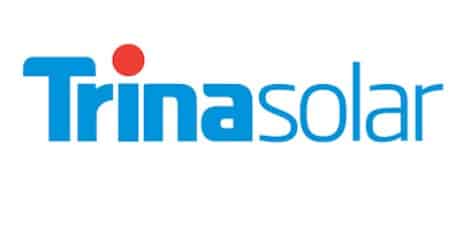
Canadian Solar
For over two decades, Canadian Solar provides quality and affordable solar panels for homeowners. The company is one of the global top five solar panel producers. While Canadian Solar’s efficiency is lower than other offerings, its solar panels are ideal for homeowners seeking low-cost options. Canadian Solar offers three main residential series — Ku, HiKu and HiDM — in both monocrystalline and polycrystalline. As we
Specs:
- Product Warranty: 12, 15 and 25 year options
- Performance Warranty: 25 or 30 year options
- Efficiency: 15.88% — 22%
- Power Rating: 350 — 665 W
- End of Warranty Performance: 83.1%
- Material: Monocrystalline & Polycrystalline options
What we like:
- Affordability
- Offers both Monocrystalline and Polycrystalline panels
- Solid option for homeowners in colder climates
What we don’t like:
- Performance may decrease in warmer climates

What to look for in solar panels?
Now that you’ve seen the best solar panels on the market, you might want to know what to look for in a solar panel. Below is an overview of some factors to consider when choosing a solar panel. It is not an exhaustive list but will help you know what to look for and what questions to ask installers.
Solar Panel Material
Solar panels — sometimes known as photovoltaic (PV) panels — are a device that converts energy from sunlight into electricity. Solar panels are made of solar cells, which are usually crystalline structures made of silicone. The first three keywords refer to the material used to make solar panels.
Monocrystalline: Monocrystalline solar panels are made from one silicone crystal that is cut into multiple wafers to capture sunlight. The efficiency of monocrystalline panels is usually between 15-20% — which is good. The high efficiency of monocrystalline panels comes with a higher cost.
Polycrystalline: Polycrystalline solar panels are made from multiple silicone crystals that are melted and molded into a panel, then cut into wafers. The efficiency of polycrystalline panel is typically between 15-17% — which is good. Polycrystalline panels were made before monocrystalline panels and are therefore less expensive, but at a medium price..
Efficiency & Performance
Solar panel efficiency refers to how much sunlight is converted into usable electricity. Homeowners want solar panels with a high efficiency percentage. A good efficiency range is 15-22% — though high quality solar panels can now reach 23%, but less common. However, the higher the efficiency of a solar panel, the higher the price.
Before you decide on a solar panel, you should consider the energy requirements of your home. You might not need the best solar panels commercially available to power your home, just like you don’t need a sports car to get groceries. Besides efficiency, you should consider how much energy one panel can generate and how many panels you can fit on your roof. Think about how many watts a panel can generate and what is needed to power each of your appliances, lights and potentially your electric vehicle. Compare this to how much energy your home normally uses and what you want from your solar set up (saving money vs. going off grid).
Size
The size and weight of a solar panel are important factors to consider. Your roof has limited space — especially limited usable space. Though size and weight vary from brand to brand, EnergySage reported standard dimensions for a residential solar panel are 66×40 inches for the panel, 1.25×1.6 inches for the frame and each panel weighs around 42 pounds. Another way to put that is a standard panel can be around 5.5 feet by just over 3 feet — with an area between 15-18 feet. Commercial solar panels are typically larger.
Durability & Warranty
Solar panels can be a big investment for your home and can last 25-30 years. You want to make sure you can either see the full lifespan of your system or reap the increased value of your solar home when you sell.
When looking at reviews, try to see how long solar products can last. As a good indicator, you can also look at the warranty. The length of the warranty can give an indication of the manufacturer’s confidence in the solar panel product. Most manufacturers have a 25-year warranty for solar panels.
There are two main warranty types: a performance warranty and an equipment warranty. All electronic products degrade over time and a performance warranty guarantees if your panels’ performance deteriorates faster than normal, it will be replaced. EnergySage reported most warranties will guarantee 90% performance at 10 years and 80% performance at 25 years. An equipment warranty will typically protect your equipment for 5-12 years.
Installer Maintenance & Reputation
It doesn’t matter if you find the right solar panel if it’s installed incorrectly, damages your roof or experience untransparent pricing. Homeowners need to do their due diligence when looking for a solar installer. Besides looking at installer services, online reviews and asking friends or family members — compare quotes, ask for pricing information and see how long they’ve been in business.
A good rule of thumb is using an installer with more years of experience. When looking at quotes, make sure each quote specifies the the make and model of panels, inverters and batteries; pricing, total system size (kW), expected electricity generation (kWh), expected utility bill savings, total system costs before and after incentives, information on solar incentives, financing information and warranty information. Another must-have to help you visually understand your new system is a satellite photo of your home with the proposed layout.
Factors that Impact Solar Panel Performance
Once you’ve made the solar investment for your home, you want to get the most out of your decision. Solar energy can both reduce your carbon footprint and save you money. Both benefits make solar panels an attractive option.
Size: The size of your solar panels and the number of solar panels on your roof are an important factor in energy generation. Depending on the efficiency of your solar panel, a larger solar panel will likely generate more energy. The good news is solar panels are often scalable and adding more panels to your rooftop can generate more power for your home.
Orientation: The direction your solar panels face is an important factor in energy production. In the United States, homeowners typically want solar panels installed on roofs that face south. The right orientation will expose your solar panels to the maximum amount of direct sun. The angle of your solar panels is also important, homeowners should aim for a tilt between 30 and 45 degrees to capture optimal sunlight. With the improper direction and angle, your home may not see the maximum amount of solar energy possible. EnergySage offers a great resource that helps homeowners find the optimal solar panel orientation for their latitude.
System Components: All technology is made of different components that contribute to the solar panel’s efficiency. If you’re not seeing optimal solar generation and savings from your solar system, there could be a problem with one of its components. If there is a component issue with your solar system, contact the solar installation company that installed your setup.
Sunlight: Solar panels convert sunlight energy into electricity, which requires good access to the sun. Sunlight accessibility does not just refer to the number of sunlight hours per day or the cloudiness level. Other factors that can impact your solar panels’ performance include dust, leaves, snow and shade from trees or buildings. It is important for homeowners to clean their solar panels once or twice a year to remove dust — more may be needed to remove snow, leaves or other debris.
System Temperature: Similar to leaving your smartphone in a hot car, solar panel systems experience lower efficiency as their temperature rises. High temperatures could be caused from extreme outdoor air temperatures or heat buildup from rooftop material.
How to take care of your solar panels?
Solar panels are an investment for your home and need to be maintained. Another great thing about solar is that panels require minimal maintenance from homeowners or small business owners. Despite the minimal maintenance required, it is important to maintain solar panels for optimal solar generation. A good solar panel setup can last 25-30 years and can pay for itself in five to 12 years.
Annual Inspection: Scheduling an annual inspection from a solar installer company in your area is a good idea. Hiring a professional solar inspector can help diagnose problems early or before they happen. The cost of an annual inspection could be around $150, according to Home Advisor.
Cleaning: Dust, leaves, snow and debris block sunlight from reaching your solar panel. Generally, it’s a good idea to schedule two cleaning appointments per year. For some homes, that could be once a year and for others, it could be four times a year. It’s generally better to hire a professional solar cleaning service to safely go onto your rooftop. The costs of a cleaning appointment can average $15-25 per panel for a home with 20-25 panels.. To save money, it is possible to clean your own solar panels but you will need the right cleaning and safety equipment. There are safety risks with cleaning your own solar panels and you should check your warranty stipulations.
How to monitor your solar panel performance?
Once solar panels are installed on your home or property, it is important to monitor its performance. Homeowners want to make sure their solar panels are working the way they intended. Before you make your purchase, you should know how much electricity your solar panels should generate on average. If you include a backup battery in your home’s setup, you also want to know your battery’s state of charge so you can depend on it.
We created Enact Home — a digital platform that helps homeowners track their solar performance. Using Enact Home, homeowners can track solar energy generation, financial outcomes and storage performance. Our key performance metrics provide you with independent analysis and personalized insights through easy-to-understand visual displays. Enact Home provides trust and transparency in your solar journey. Homeowners can find Enact Home on either the App Store, Google Play or use the desktop version.
The Next Steps
The wonderful, yet frightening, thing about solar panels is that you have options. Homeowners have greater access to solar panels today due to a variety of brands, greater incentives and lowering costs of going solar.
Enact Systems understands that making the switch to clean energy is complicated, which is why we can create a custom solar proposal for your home. After a conversation with our energy experts, Enact can provide accurate proposal quotes for you using satellite imagery. You can choose the best product, installer and financing option that works for you. Afterwards, homeowners can use Enact’s digital platform to monitor and visualize your solar system’s performance.
Note: The recommendations above might not be suited for “off-grid” solar energy needs. You may be able to power your home’s total energy needs with the mentioned panels. There are solar panels specifically designed for people who do not want to rely on the electrical grid — or who are geographically remote.

